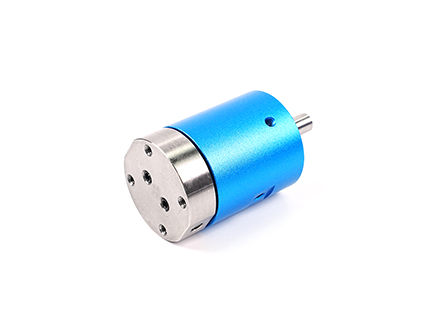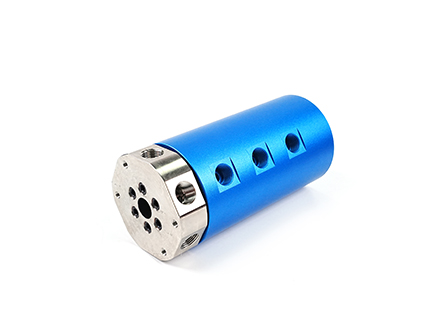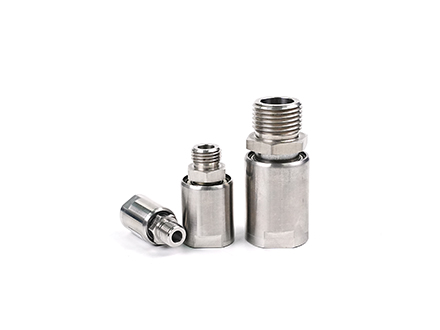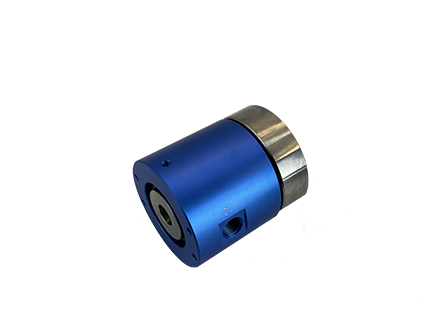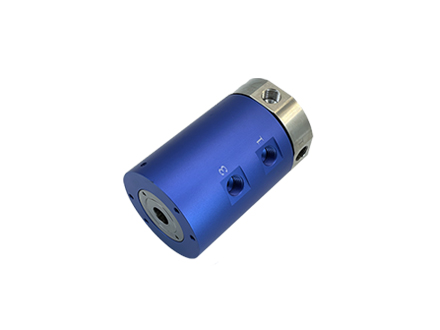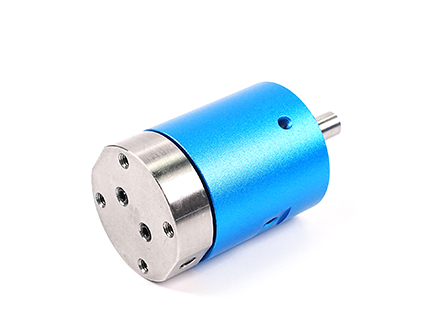
Definição
Anel de deslizamento de artambém conhecido como anel de deslizamento de ar ou anel de deslizamento pneumático, é um dispositivo especialmente projetado para transmitir energia, sinais ou dados entre peças rotativas e peças fixas. Ele resolve o problema de fácil entrelaçamento e desgaste de fios tradicionais durante a rotação, mantendo a conexão elétrica durante a rotação. Embora a palavra "Ar" no nome possa desencadear associações relacionadas a sistemas pneumáticos, em aplicações reais, ela se refere mais a um dispositivo de anel de deslizamento que pode girar livremente no ar e manter a conexão elétrica.
Características
Excelente desempenho elétrico: Anel de deslizamento de ar tem excelente desempenho elétrico, incluindo alta tensão nominal, corrente nominal, boa resistência ao isolamento e resistência ao contato, etc., para garantir a transmissão estável de energia e sinais.
Estrutura compacta: Seu projeto estrutural é compacto, pequeno em tamanho e leve em peso, que é fácil de integrar em vários equipamentos rotativos.
Rotação flexível: O anel de deslizamento adota um mecanismo de contato de rolamento ou deslizamento preciso dentro para garantir que as peças giratórias ainda possam manter uma conexão elétrica estável ao girar a alta velocidade.
Forte adaptabilidade ambiental: É adequado para vários ambientes duros, como alta temperatura, baixa temperatura, umidade, etc., com alta confiabilidade e segurança.
Transmissão de sinal diversa: Além de transmitir energia, também pode transmitir uma variedade de sinais, como Ethernet, USB, RS, Canbus, etc., para atender a diferentes requisitos de aplicação.
Função
Transmissão de energia: Fornecer fonte de alimentação contínua para peças rotativas para garantir o funcionamento normal do equipamento.
Transmissão de sinal: Realizar comunicação de sinal bidirecional entre peças rotativas e peças fixas, incluindo sinais de controle, sinais de dados, etc.
Transmissão de dados: Suporta a transmissão de dados de alta velocidade, como a transmissão de dados de varredura em scanners de TC, para garantir o tempo real e a precisão dos dados.
Impedir o emaranhamento do fio: Através da conexão giratória do anel deslizante, o problema do emaranhamento dos fios tradicionais durante a rotação é evitado, e a confiabilidade e a segurança do equipamento são melhoradas.
Parâmetros do produto
Vida de trabalho | Consulte a tabela de seleção de grau de produto | Tensão nominal | 0-440VACNDC |
Velocidade nominal | Consulte a tabela de seleção de grau de produto | Resistência ao isolamento | <500mq> |
Temperatura de trabalho | -30 ° C ~ 80 ° C | Especificação do fio | AWG17#/AWG22#Teflon revestido de prata |
Umidade de trabalho | 0~85%RXH | Comprimento do fio | comprimento padron250mm |
Material de contato | Consulte a tabela de seleção de grau de produto | Resistência do isolamento | 500VAC@50XHz O 6S |
Material da concha | liga de alumínio | Valor de mudança de resistência dinâmica | <0.010<> |
Rotation torque | 0.05N.m+0.02N.m/6Flow passage | Protection level | IP51 |
Application field
Anel de deslizamento de ar is widely used in various occasions requiring rotary connection and power and signal transmission, including but not limited to:
Wind turbines: Connect rotating blades and fixed control systems to realize the transmission of power and control signals.
Aerospace equipment: In rotating parts such as aircraft and satellites, connect power and control signals to ensure the stable operation of the equipment.
Medical equipment: Such as CT scanners, MRI, etc., use slip rings to realize power and signal transmission between rotating parts and fixed parts.
Industrial Automation: In automated production lines, slip rings are used to transmit power and signals, improving the flexibility and control accuracy of equipment.
Robotics: In the rotary connection of robot arms and joints, slip rings are used to transmit power and data, improving the flexibility and functionality of robots.
Amusement facilities: Such as carousels and Ferris wheels, slip rings are used to provide power and signal transmission for rotating parts to ensure the safe operation of amusement facilities.
Maintenance and care
In order to ensure the long-term stable operation of the Anel de deslizamento de ar, regular maintenance and care are required. The specific steps are as follows:
Regular inspection: Regularly check the appearance, contact points, and connecting wires of the slip ring to ensure that there is no damage or looseness.
Clean the ring surface and brush head: Regularly clean the carbon powder, oil and other impurities on the ring surface and brush head of the slip ring to keep the contact surface clean and smooth. Special cleaning agents and tools can be used for cleaning.
Check the wear of the brush head: Regularly check the wear of the brush head. When the brush head is worn to the marking line, a new brush head should be replaced in time.
Lubrication: Add an appropriate amount of lubricant to the rotating part of the slip ring to reduce friction and wear, and improve the rotation flexibility and service life of the slip ring.
Avoid overload: During use, avoid the slip ring from being subjected to excessive current or voltage to avoid damaging the electrical performance of the slip ring.
Regular calibration: For slip rings that need to accurately transmit signals, calibration should be performed regularly to ensure the accuracy and stability of the signal.
Precautions
Installation precautions: When installing the slip ring, ensure that the stator and rotor of the slip ring are correctly aligned to avoid installation errors that cause the slip ring to fail to work properly.
Use environment: The slip ring should be installed in a dry, ventilated, non-corrosive gas environment to avoid damage to the slip ring due to harsh environment.
Operation specification: During use, the slip ring should be operated in accordance with the instruction manual to avoid damage or failure of the slip ring due to improper operation.
Safety protection: When maintaining and servicing the slip ring, the power supply should be disconnected and necessary safety protection measures should be taken to avoid electric shock or injury.
Regular maintenance: The slip ring should be maintained and serviced regularly to promptly detect and deal with potential problems to ensure the long-term stable operation of the slip ring.
Replacement cycle: According to the use of the slip ring and the manufacturer's recommendations, regularly replace the slip ring's wearing parts, such as the brush head, to ensure the electrical performance and service life of the slip ring.
As a key rotating connection device, the Anel de deslizamento de ar plays an important role in power transmission, signal transmission, and data transmission. By understanding its definition, characteristics, functions, application areas, and maintenance and maintenance methods, this device can be better applied and maintained to ensure the stable operation and safety of the equipment. At the same time, relevant matters should also be paid attention to during use to avoid failures and damage caused by improper operation or improper maintenance.






